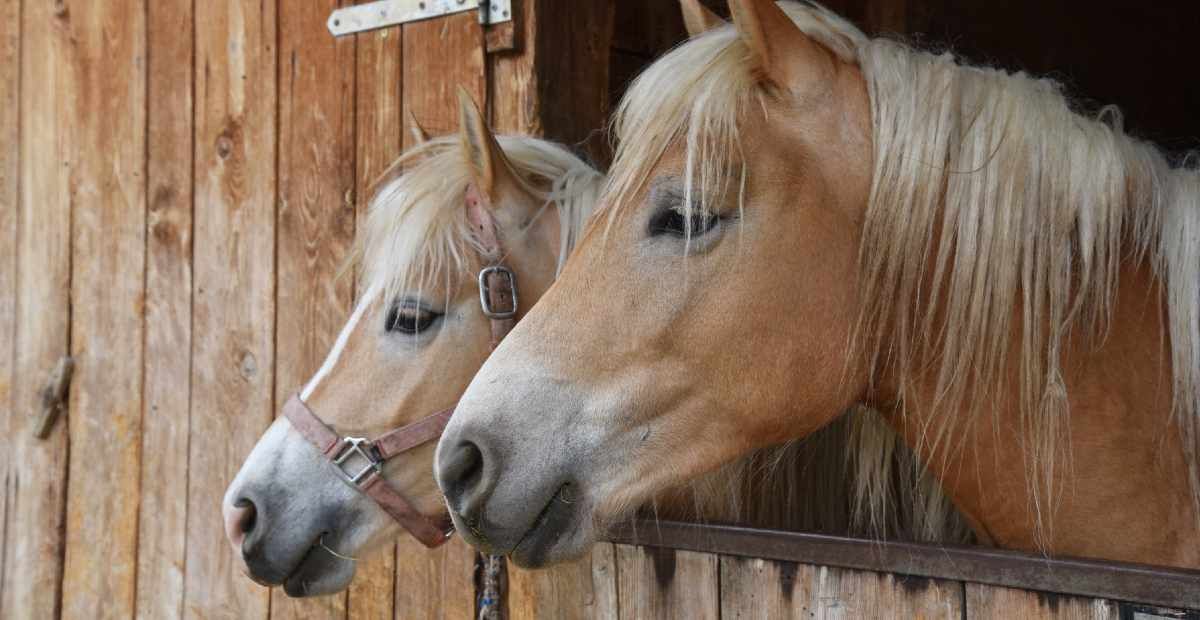There are a few signs to pay attention to which indicate that your horse has a respiratory problem. The first sign will likely be things like they are:
When you see these signs of illness, the next thing to do is to take a rectal temperature to check for fever. A fever is a sure sign that it’s time to call your local horse doctor. After checking for fever, examine what they are eating. Is the hay wet? Is it dusty? Does it smell like mold? Next, check out the environment that they are in. Is the barn filled with dust? Does it smell like ammonia due to urine-soaked bedding? Any of these situations can cause an inflamed respiratory condition for your horse. When their lungs are compromised, they are more susceptible to viruses.
Other tell-tale signs of problems are things like nasal discharge and inflamed lymph nodes. If your horse’s nose is discharging a clear, watery liquid, it may be fine, but it can also be an indication of a viral infection. If the discharge is opaque, it usually means it’s an allergic reaction or airway inflammation. If the nasal discharge is yellow or green it usually means there is a bacterial infection.
To identify an inflamed lymph node, feel beneath your horse’s jaw. If there is a large lump there, move the horse into isolation and keep a close eye on them. Take their temperature every day, feed and water them separately, and keep an eye out for any of the previously mentioned symptoms. It’s important to keep potentially sick horses isolated from other horses, as some viruses can be extremely contagious, like Streptococcal. Based on the individual case of your horse, we will be able to provide guidance for how their illness should be handled. There are three main responses to a horse with a respiratory disease:
Improve Their Air Quality
Immunization
Isolation
These three “I”s are best-practice strategies for maintaining the health of your horse’s airways.
Air Quality
When a horse has a respiratory problem, it’s important to make sure they are breathing fresh air. It’s a good idea to move them outside if they are inside and to feed them hay off the ground instead of in a chest-high feeder. When they eat off the ground, it will help drain their nostrils and airways. You can also improve air quality by soaking their hay with water before feeding them, to reduce the amount of dust and spores that would otherwise be breathed in during feeding. Another solution is to use a commercial hay steamer to remove dust and mold spores before feeding.
Immunization
Getting your horse routinely vaccinated by your veterinarian will help minimize respiratory infections in your horses. Remain diligent with immunization and you will significantly reduce the risk of your horses becoming ill before a contagion presents itself.
Isolation
As mentioned earlier, if your horse is coughing or showing other signs of having a virus infection, it should be isolated from any other horses to prevent the spread of the contagion. We suggest consulting with your veterinarian regarding diagnosis and treatment.

